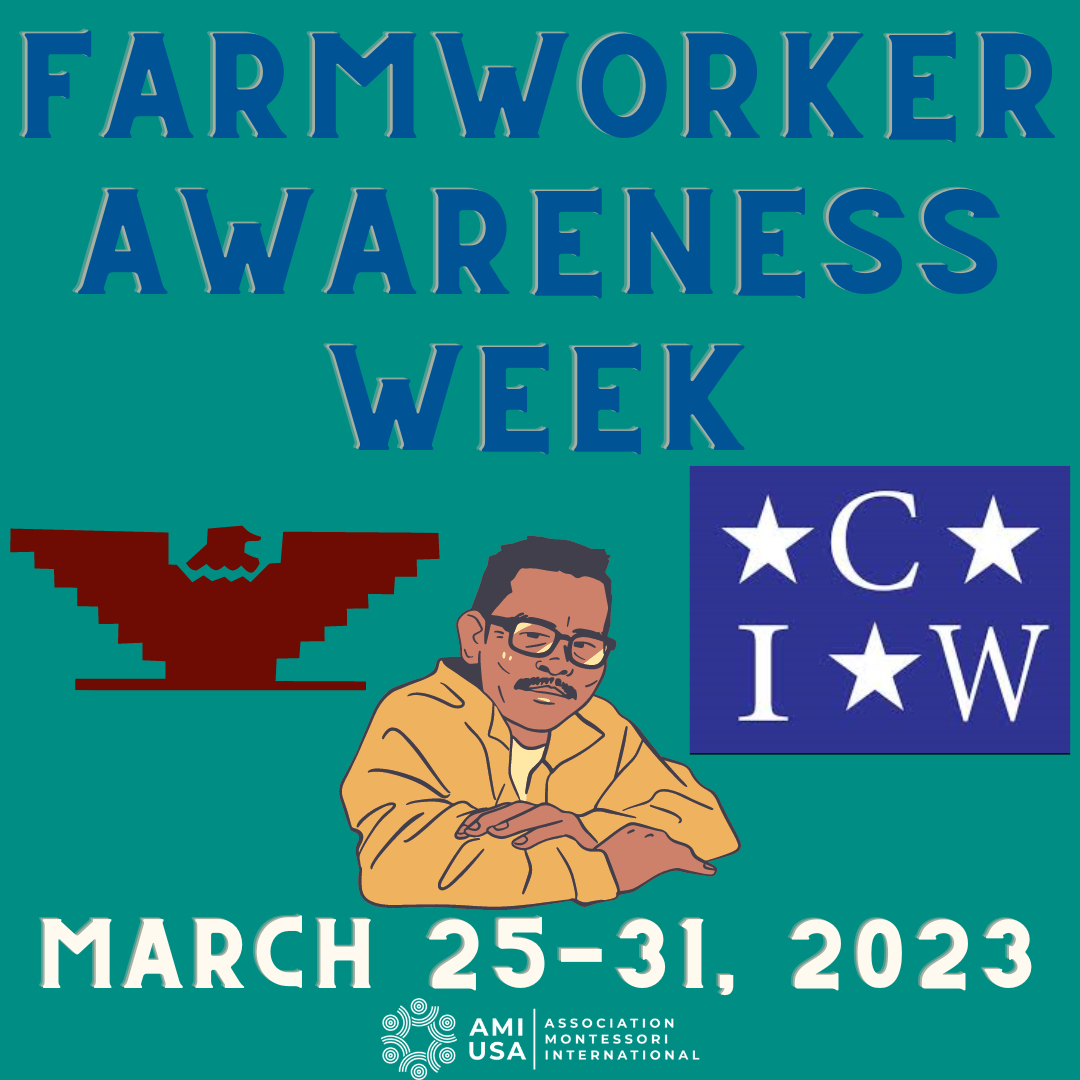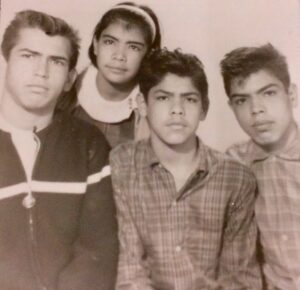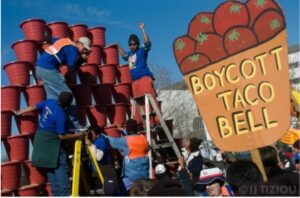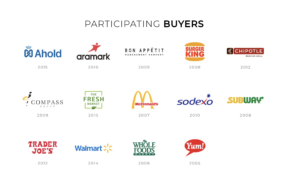Farmworker Awareness Week in the Montessori Environment

Farmworker Awareness Week in the Montessori Environment
March 25-31, 2023
By: Marina Sáenz, M.Ed.
Farmworker History in the Settler-Colonial United States
The last week in March is National Farmworker Awareness Week. It is “a week of action for students and community members to honor farmworkers’ important contributions and to raise awareness about the issues they face” (SAF, 2023). While farm work has largely remained unchanged, there is hope for a new day dawning in one corner of the country.
The story of farm labor in the Settler-Colonial United States cannot be told without the history of the Native People who have worked with the land since time immemorial. In the last few hundred years, kidnapped Africans were among the first to begin harvesting food at a large scale, against their will while seeking liberation. After slavery was abolished, farm conditions remained difficult to change.The Smithsonian Institute explains:
In the South, sharecropping and the racial and structural legacy of slavery made it impossible for large-scale organization. Lynching, segregation, and other racial terror and policing tactics maintained a racial status quo to the detriment of Black and non-white citizens (Perez, 2020).
People may be surprised to learn that many of our favorite ingredients, like tomatoes, chiles, and blueberries, are still picked by hand. The Wilson Center says there are approximately 1.5 to 2.5 million US farmworkers today. (Martin, 2020) This makes it possible for the majority of the country to have food in grocery stores, restaurants, and school cafeterias.
Family Stories of Farm Labor
In my family, I heard stories from my late father, aunts, and uncles about working in “la labor” or “the fields” as children. They harvested tomatoes, melons, citrus, onions, hops, blueberries, apples, and potatoes across several states ranging from Oregon to Idaho to Michigan before returning to a new harvest in Texas where the cycle would repeat again.
 Photo of my Uncles, Aunt, and Father near a migrant farmworker camp in the 1960s.
Photo of my Uncles, Aunt, and Father near a migrant farmworker camp in the 1960s.
My father began to work in the fields as a young child. After his mother passed away at the age of 13, migrant farm work was necessary in order for his family to survive. When I asked my father about these times, the response was “Lo que tu quieres saber, yo quiero olvidar” or “What you want to know, I want to forget.”
While this work is dignified, earnest work, it is difficult to ignore the injustice of children picking fruits and vegetables instead of learning in school. In fact, children have been historically excluded from federal labor protections in agriculture. Amy Volz of the Immigration and Human Rights Law Review writes “Due to loopholes in the Fair Labor Standards Act, children are exploited daily on farms across the United States” (Volz, 2022).
Consciousness + Commitment = Change
In the early 1990s, a group of farm laborers began to gather in a parking lot in a small Florida town known as Immokalee. “The Coalition of Immokalee Workers (CIW) is a worker-based human rights organization internationally recognized for its achievements in fighting human trafficking and gender-based violence at work” (CIW, 2017).
Over the years, the CIW has developed the award-winning Fair Food Program (FPP) along with the Anti-Slavery Program. Accolades include a MacArthur “Genius” Fellowship, Presidential Medal for Extraordinary Efforts to Combat Human Trafficking, and the Roosevelt Institute Freedom From Want Medal (CIW, 2017).
The Fair Food Program’s legally-binding Code of Conduct includes the strongest protections for children and anyone being forced to work against their will. These violations include systemic use of illegal child labor which results in automatic suspension of a Participating Grower from the FFP (Fair Food Standards Council, 2020).
The CIW’s motto “Consciousness + Commitment = Change” demonstrates their commitment to education and action for all who are interested in creating lasting change in our food system. They teach others about the Fair Food Program which garners the power of consumers to hold large-scale farms and corporations accountable.
Sharing Farmworker Stories with Children
I have been a supporter of the CIW since 2007, which was also about the time I began working at my first Montessori preschool in Baltimore, Maryland. I saw many parallels between the CIW’s Popular Education method and Montessori philosophy.
I stepped away from the classroom to help expand the Fair Food Program through consumer education campaigns. This involved visiting elementary, middle, and high schools as well as college campuses. Farmworker leaders offered sensorial experiences to children to help explain abstract ideas. We brought in fresh fruits and vegetables. We would bring along specific tools used by farmworkers like a red bucket that is commonly used to pick tomatoes. We would fill the bucket with the dry rice that is the same weight of a full bucket of tomatoes – 32 pounds. Farmworkers would tell stories about what this work was like before the Fair Food Program and what it is like on farms that are a part of the program today.
 Photo by JJ Tiziou, courtesy of the Coalition of Immokalee Workers. The red buckets used to pick tomatoes are used in an art installation to demonstrate how many buckets are filled each day. The Taco Bell Boycott ended with a Fair Food Agreement in 2005.
Photo by JJ Tiziou, courtesy of the Coalition of Immokalee Workers. The red buckets used to pick tomatoes are used in an art installation to demonstrate how many buckets are filled each day. The Taco Bell Boycott ended with a Fair Food Agreement in 2005.
When I returned to the classroom, it was in the Montessori elementary environment. The possibilities for lessons about farmworkers felt endless. I brought fresh fruit and vegetables, a red bucket, and 32 lbs of rice to school. I shared video clips and read accounts of farmworkers telling their own stories. These lessons led to many questions, which in turn led to research projects. We learned about supply chains and had a dialogue about fairness. We compared and contrasted conditions of different farms. We made maps and diagrams. We made human rights more concrete through these experiences that were child-led and teacher-supported.
Currently, there are 14 major corporations participating in the Fair Food Program, which has zero tolerance for forced labor, illegal child labor, and gender-based violence. In the most recent case of modern-day slavery, the Department of Labor named Kroger as both buying and selling produce from a farm implicated in using forced labor (CIW, 2023). Now Wendy’s, Kroger, and Publix Supermarkets are being asked to join this award-winning program and help eliminate these abuses.

Image courtesy of the Coalition of Immokalee Workers.
This Farmworker Awareness Week, how will you prepare your Montessori environment to support human rights for farmworkers?
References
Coalition of Immokalee Workers. (2017). About CIW – Coalition of Immokalee Workers. Ciw-Online.org. https://ciw-online.org/about/
Coalition of Immokalee Workers. (2023). BREAKING: US Department of Labor press release on latest forced labor prosecution names buyers, including Fair Food Program holdout Kroger. Ciw-Online.org. https://ciw-online.org/blog/2023/02/breaking-us-department-of-labor-press-release-on-latest-forced-labor-prosecution-names-buyers-including-fair-food-program-holdout-kroger/
Fair Food Code of Conduct. (2020). Www.fairfoodstandards.org; Fair Food Standards Council. https://www.fairfoodstandards.org/resources/fair-food-code-of-conduct
NFAW – National Farmworker Awareness Week. (2020, November 12). Student Actions with Farmworkers. https://saf-unite.org/national-farmworker-awareness-week
Perez, L. (2020, October 12). Essential and expendable: The rise of agricultural labor and the United Farm Workers. National Museum of American History. https://americanhistory.si.edu/blog/essential-and-expendable
US Farm Employment and Farm Workers | Wilson Center. (2020, June 24). Www.wilsoncenter.org. https://www.wilsoncenter.org/article/us-farm-employment-and-farm-workers
Volz, A. (2022, October 25). It is Time for the U.S. to Overhaul its Agricultural Child Labor Laws. Immigration and Human Rights Law Review. https://lawblogs.uc.edu/ihrlr/2022/10/25/it-is-time-for-the-u-s-to-overhaul-its-agricultural-child-labor-laws
Resources
Fair Food Now! Lessons for Children – click to download: https://amiusa.org/fair-food-now-curriculum/
Food Chains Film
Film trailer featuring Eva Longoria and Forest Whitaker- https://rocofilms.com/films/food-chains/
(Full Documentary available on Netflix)
Fair Food Program – Frequently Asked Questions
https://www.ciw-online.org/Resources/12FFP_FAQs_Formatted.pdf
AP article – Farmworkers use Florida march to pressure other companies
https://apnews.com/article/florida-agriculture-farmworkers-protest-tomatoes-fair-food-c7502c1f2c5a01d7f611d2d1b959bac9
